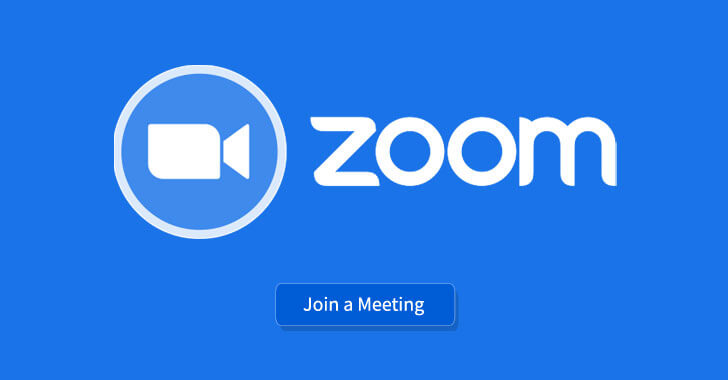As UK bans Zoom for critical meetings, Facebook and others perfect alternatives
The COVID-19 pandemic has forced online-based communications between people via videoconferencing. Zoom is certainly exploiting the current disease situation to accumulate wealth for its shareholders, by fulfilling a need – communicating with others via video – independent of the sinister circumstances that created the need. Compared to the numerous videoconferencing tools before it, Zoom is […]

The COVID-19 pandemic has forced online-based communications between people via videoconferencing. Zoom is certainly exploiting the current disease situation to accumulate wealth for its shareholders, by fulfilling a need – communicating with others via video – independent of the sinister circumstances that created the need.
Compared to the numerous videoconferencing tools before it, Zoom is easy to use and install. It also has a popular grid view that enables you to see everyone on a call at once, providing some social atmosphere. Zoom gives out a 40-minute free videoconference for up to 100 participants. In early January of this year, that is, before the world knew of COVID-19, Zoom reportedly had 10 million users. As of last week, the company reported 300 million users. The grid view in Zoom, with its social implications, certainly cuts into the turf of Facebook, a company that has excelled at providing a slew of social platforms. Now the competition is on between the big fish that Facebook represents, and the opportunistic platform that is Zoom.
It is not clear that Zoom will continue to flourish and leave its competitors in the dust. The platform has encountered a few challenges in its short life span. It allows uninvited people into calls and broadcast racists, bigoted, pornographic, and otherwise offensive materials, in a phenomenon known as “Zoombombing.” As I wrote in this column on 6 April 2020, “With a search tool, you could locate hundreds or thousands of scheduled Zoom meetings worldwide, and you would be able to join them even if you were not invited.” Zoom has been plagued by reports that the software illegally sends your data to Facebook and sharing LinkedIn information, even when you use fake names. The company has also been accused of engaging in deceptive advertising, when it claims that its tool has end-to-end encryption, when it doesn’t.
According to the UK Guardian of 24 April 2020, “The Citizen Lab, a digital communications laboratory based at the University of Toronto, warned in early April 2020 about potential security risks (with Zoom). Security keys, which are supposed to encrypt conversations in some cases, are delivered to participants in a Zoom meeting through servers that were in Mainland China it said in a special report published earlier this month.” The UK Guardian article also states that Zoom “owns three companies in China that develop its software.” Citizen Lab has been quoted as suggesting that “this arrangement may make Zoom responsive to pressure from Chinese authorities.”
The foregoing issues with Zoom are enough to force some organizations to ban the use of Zoom, as some have already done. According to the UK Guardian article alluded to above, “the UK government and parliament were told by the intelligence agencies last week to not use the videoconferencing service Zoom for confidential business, due to fears it could be vulnerable to Chinese surveillance.” Moreover, the government of Taiwan reportedly announced early this month that “it would ban the use of products such as Zoom where there were security concerns.”
The foregoing problems for Zoom, coupled with the encroachment into Facebook’s social media turf, are enough to propel Facebook into a fierce competition with Zoom. Last week Friday, Facebook unveiled one of its most aggressive expansions into videoconferencing. Its video chat tool, called Messenger Rooms, allows you to invite up to 50 people in a video group chat, even those without a Facebook account. This is free and has no time limit! The 8-people video capability on mobile and desktop devices was rolled out for some users on 24 April 2020, while the 50 people capability will be available to the world in the next few weeks. I have learned that there are no plans to monetize Rooms, but the capability could strategically “keep Facebook’s products central to your life.” In other deployments at Facebook, WhatsApp has now expanded group video calls from four to eight participants. Apparently learning from the security disaster at Zoom, Facebook Rooms can, according to techcrunch.com, “lock the room to block people from joining via URL, and if you boot someone out from Rooms, it automatically locks until you unlock it. That ensures that if trolls find your link, they can’t just keep joining from the web.”
Facebook is not the only big tech company that has Zoom on the crosshairs. Google Meet video chat is capable of accommodating thousands of users, and Google is in the process of plugging Meet into Gmail so that you can take video calls inside your email browser window. There is also a grid-style view for Meet. Cisco is aggressively promoting its WebEx teleconferencing service as highly secure compared with Zoom. (Zoom’s founder was an employee at WebEx before he left to form Zoom.) And Verizon, a US telco, announced last week that it was acquiring a videoconferencing service known as BlueJeans Network.
I do have a few concerns about Facebook’s answer to Zoom. The focus on social media appears to eclipse a large part of the potential user base that is interested in education-related video interactions. Also, the name “Messenger Rooms” or “Facebook Rooms” – whatever the new videoconferencing too is called – is a bit too tacky. Something crispier should work.
